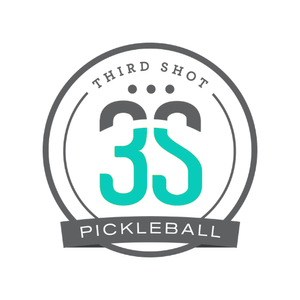Marcin Rozpedski at the 2017 US Open.
It was almost a year ago yet I still think about it often. I put out a survey asking people whether they thought a pickleball player ought to apologize after hitting a lucky shot. The example I used was when their shot unintentionally clips the top of the net, making it difficult or impossible for their opponent to play a reply. I used a fictional scenario to illustrate how the lack of apology could be interpreted as bad sportsmanship.
I knew, of course, that some people would say that no apology was needed; that this was “part of the game” and that “what comes around goes around”. What I wasn’t prepared for was the great number of people who took the position that no apology was due.
Of the 142 people that answered the question, a full 114 (80%) said that no apology was necessary. The 48 people who chose to offer additional comments used some of the following explanations to justify their view:
- The better you get, the luckier you get.
- Just part of the game. It happens to everyone.
- I find it’s being too sensitive that you need an apology.
- It can just as easily go the other way next time.
- Why should I apologize for being lucky? I am thankful for my blessing…If you are lucky then I congratulate you on your blessing.
The results surprised me; I never expected 8 in 10 people to be anti-apology when a ball hits the net and dribbles over for a winner or hits your hand for an un-returnable shot. To be fair, how I framed the question (“Should you apologize after hitting a lucky shot”) may have caused a reflex in those who think you should never have to do anything.
But I have often wondered about why this many people were opposed to the suggestion that apologizing for a lucky shot should be the normal expectation. One answer may lie in the ongoing tension between pickleball and its closest cousin, tennis, where apologizing for net cords is standard practice. I often hear from people complaining that tennis players who take up pickleball don’t play “properly” and that tennis courts should be made to include pickleball lines. The tensions that sometimes exist between these two communities may explain why one commenter explained their “no” vote with the only justification being “that’s just a carry-over from tennis”. For some people, if something happens in tennis then it shouldn’t happen in pickleball.
To better understand why so many people might oppose the practice of apologizing for lucky shots, I went to a trusted source: my mom. She’s a 3.0 pickleball player and a pro at giving advice. Before I barely finished asking the question she said, “If I had to apologize every time I hit a lucky shot, I would never shut up”. She went on “I mean, more often than not, the ball doesn’t go exactly where I want so if I win the point, there is nearly always an element of luck”.
To me, this explanation makes a lot of sense. Nobody likes to be apologizing all the time. It may also explain why many of the top pickleball players — although with some exceptions — are some of the most common apologizers. While luck may factor into a 3.0 player’s game on most points, this is decidedly less so for the pros. They have the skill to send the ball where they want more often than not and are more deliberate with their shots than most recreational players. So when good fortune happens to show up, it is a surprise rather than the norm. The infrequency of luck may make explain the top players’ willingness to acknowledge it.
Of course, I don’t know that this is true — it’s just a hypothesis. When constructing the survey, I didn’t ask people to indicate their skill level so I cannot draw a correlation.
There may be other explanations too: perhaps it is the case that we live in a time where we re-imagine good fortune as personal prowess or even as a marker of skill (“the better you are, the luckier you get”). Maybe people are so happy to win points that the thought of apologizing isn’t even on their radar. I don’t know. But for me, sports are most fun when players are able to genuinely test their skills against one another. And when luck enters the picture, it isn’t the fault of the lucky person, but it does sort of diminish the quality of the competition. I think that acknowledging a lucky shot — and yes, even apologizing for it — is one way to show that you value an unadulterated contest.


